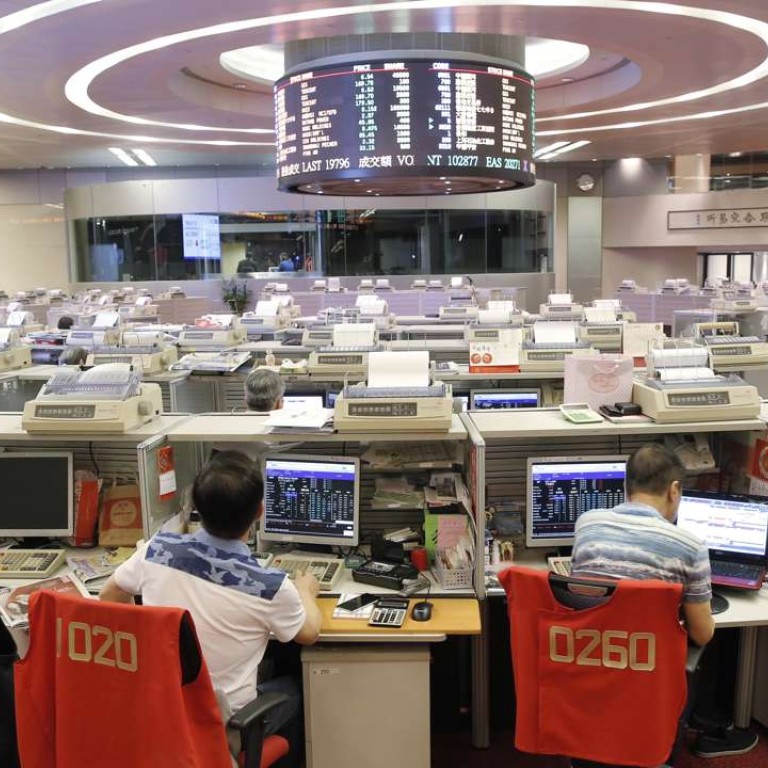
Hong Kong’s IPO market remains buoyant despite global and regional economic uncertainties
Positive performance of IPO market ahead of traditional peak season for listings reflects well on city’s reputation
Volatile stock markets in mainland China and signs that the country’s economy is slowing seem to have had little impact on Hong Kong’s initial public offering (IPO) market, which turned in a strong performance up to last month.
Benson Wong, IPO and assurance leader, entrepreneur group at PwC Hong Kong, says the city ranked No 1 in the world in the first eight months of this year for IPOs, thanks to the volume and funds raised.
He adds that Hong Kong’s IPO market faces challenges as a result of China’s “slowing economy”, and a weak global economy. In addition, there are nagging economic uncertainties caused by Brexit – Britain’s decision to leave the European Union – and the pace of possible US interest rate hikes.
Nonetheless, Hong Kong had a stellar year for IPOs, compared with other stock exchanges.
“We anticipate more buoyancy in IPO activity in Hong Kong for the remaining four months, especially in the fourth quarter – the traditional peak season for IPO listings. Hong Kong’s fundraising market looks poised to take the top spot in the world,” Wong says.
“For the first eight months of 2016, IPOs of financial services companies continued to lead the race, making up over 80 per cent of total funds raised on the main board. This reflects the fact that many mainland banks and financial institutions continued to actively pursue optimal timing to list in Hong Kong to raise capital and meet future development needs.
“We expect listings in Hong Kong for 2016 to continue their focus on financial services. The trend of financial services leading ahead is expected to extend from 2015 well through the whole of 2016 and will continue in 2017.”
Ringo Choi, EY’s Asia-Pacific IPO leader, says Hong Kong saw 62 IPOs, raising HK$75.09 billion in the first eight month of this year, registering a 1.5 per cent and 51.7 per cent decrease by the number of deals and by funds raised, respectively, compared to the same period of last year.
For the first eight months of 2016, IPOs of financial services companies continued to lead the race, making up over 80 per cent of total funds raised on the main board
He adds that after Britons voted to leave the European Union in June, “a number of companies chose to list in July which lifted the number in the third quarter. However, funds raised dropped owing to the lack of mega IPOs.”
Echoing Choi’s view is Louis Lau, partner of capital markets advisory group at KPMG China. “While Hong Kong managed to keep up with the number of IPOs, the proceeds declined more than 50 per cent. This was due to the fact that the market was dominated by smaller-sized deals. The financial services sector continued to dominate the Hong Kong IPO market in the first eight months of 2016, accounting for over 70 per cent of total funds raised for this period. “However, the weighting has increased due to an absence of sizeable deals from other sectors. With further mega IPOs from the banking sector anticipated, the financial services sector is expected to take up the vast majority of the IPO pie in 2016. Other sectors will likely evenly share the remaining market.”
Besides banks, other financial IPOs have also debuted in Hong Kong, such as leasing companies, Choi notes. “One of the reasons is that leasing companies are well received in the Hong Kong market which has a better international reputation for the issuers.”
Hong Kong is also toying with the idea of introducing a new third board with lower entry requirements, targeted at professional investors, and this could “further increase Hong Kong’s attractiveness to tech companies and help to expand the potential investor population”, Lau adds.
Edward Au, Deloitte China’s co-leader of the national public offering group, thinks Hong Kong is facing the problem of having a less attractive valuation for the technology sector than markets in the US and mainland China. Valuation has been a crucial factor for companies to select their listing venue and this issue has discouraged technology firms from listing here.
“There is an opportunity for the regulator to take from an upcoming consultation on the positioning of the growth enterprise market [GEM] to boost [Hong Kong’s] competitiveness for tech firms,” Au says.
“As the vast GEM issuers have emerged into more diverse performance and portfolios over the years, it is time to consider differentiating these companies to help investors mitigate the investment risks through such means as establishing a tier system, which is similar to what the NASDAQ in the US is.”
Hong Kong could “consider establishing a third-board market, which can act as an incubator for fast-growing and budding tech firms, such as those from the biotech industry, for professional investors”.
